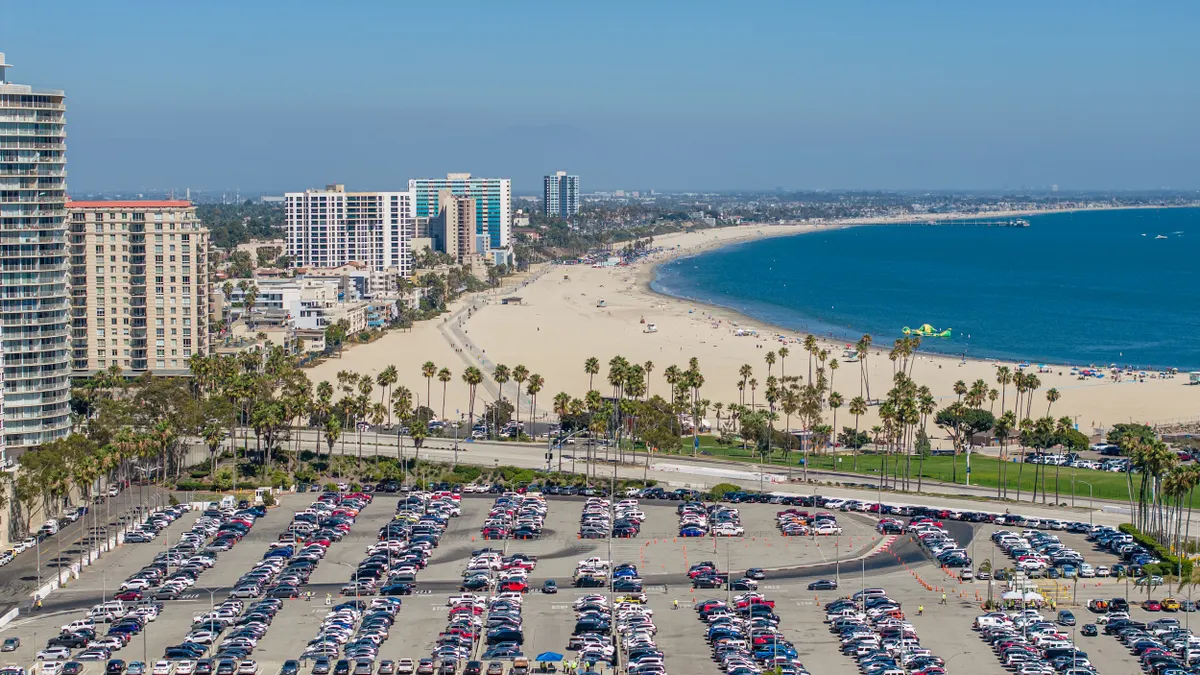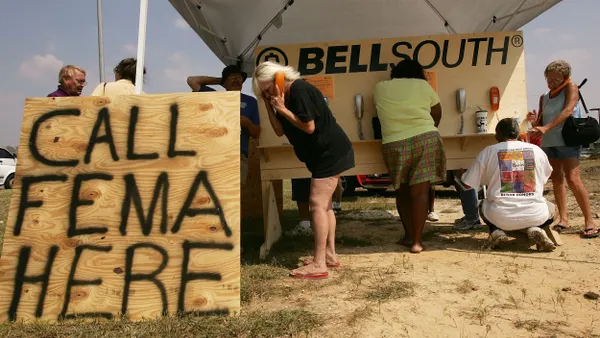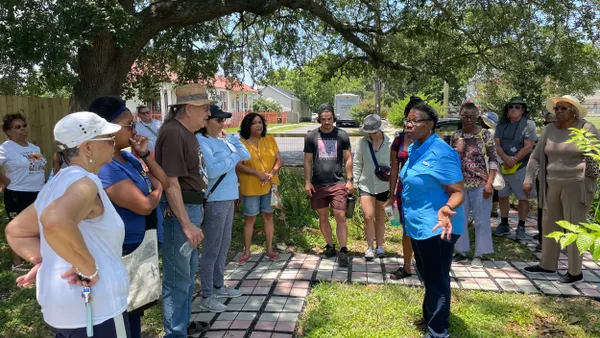Dive Brief:
-
A new Urban Land Institute exchange program will connect seven public agency leaders from areas in California and Nevada that are experiencing more natural disasters with ULI’s climate and environmental resources.
-
The California-Nevada Technical Assistance Leadership Exchange was created to encourage regional leaders to build networks and create public-private partnerships to work toward innovative approaches in preparing for future crises.
-
Agency leaders will meet with ULI District Councils to address the challenges of climate change and the economic, social and environmental impacts associated with them.
Dive Insight:
Seven public agencies — the California cities of Long Beach, Needles, San Diego and San José, the city and county of Sacramento and Nevada State University — will each host a ULI technical assistance panel to address resilience challenges particular to their region.
ULI members will tour the partnering communities and interview stakeholders to offer expert advice regarding possible solutions and strategies. After completion of the technical assistance panels, tentatively set for early 2026, ULI will publish a summary of findings to help other communities build resilience.
The city and county of Sacramento, located in the hot, arid Central Valley, are looking to “explore strategies for mitigating the urban heat island (UHI) related to new development,” said Bruce Monighan, urban design manager for the city of Sacramento.
Sacramento already has a “good urban forest team” and strategies to combat the growing heat hazard, such as increasing the city’s tree coverage from 9% to 30%, Monaghan said.
“What ULI does is bring experts from throughout the country in a particular topic to be able to look at your unique situation and talk about best practices that other people are using,” he said. “ULI is a great learning tool for local jurisdictions to look at what you’re doing locally. No matter how good you think you are, someone else can help you be better.”
Projects include improving housing, mobility and sustainability in Alamitos Beach, one of Long Beach’s oldest neighborhoods; a development plan for Nevada State University’s growing campus; identifying opportunities for sustainable growth in the city of Needles; recommendations for the development of “missing middle” housing that integrates heat-resilient design and sustainable building materials in San Diego; and identifying the best practices and funding strategies for implementing a Climate Adaptation and Resilience Plan in San José.
The program is made possible through a $10 million gift from Randall Lewis, governor of the ULI Foundation.










